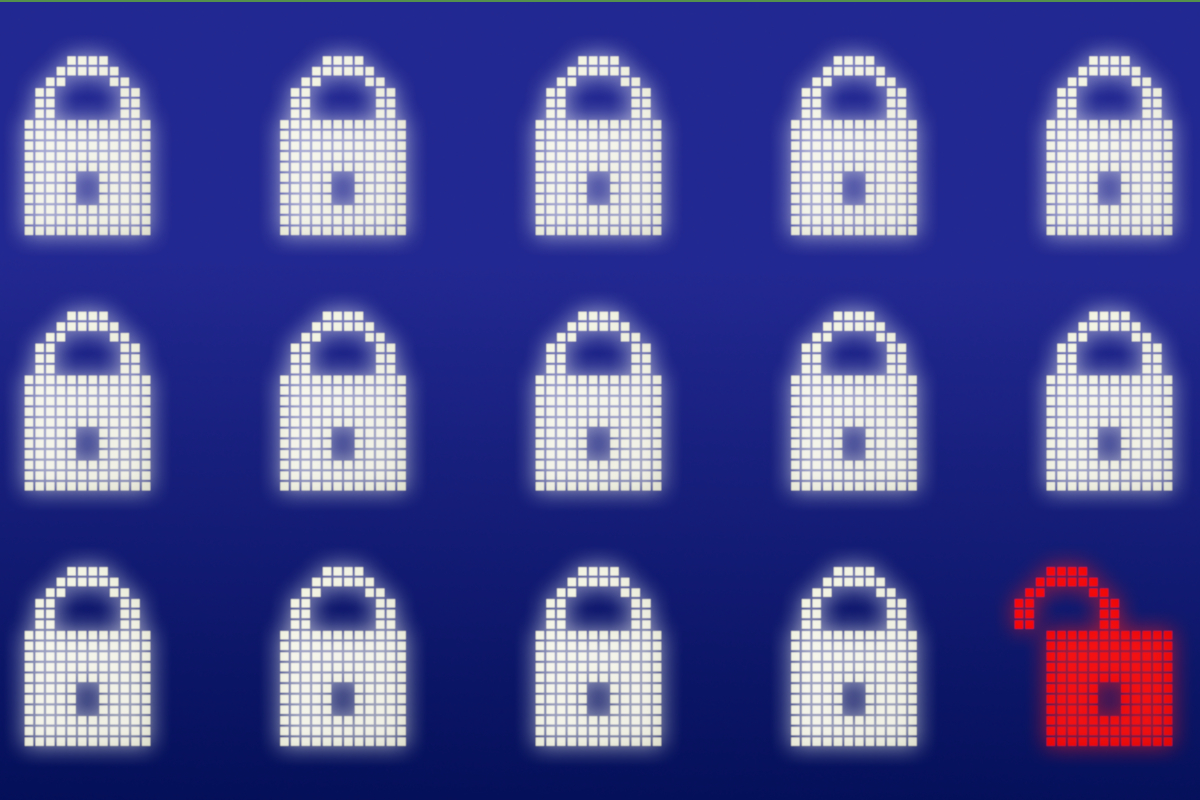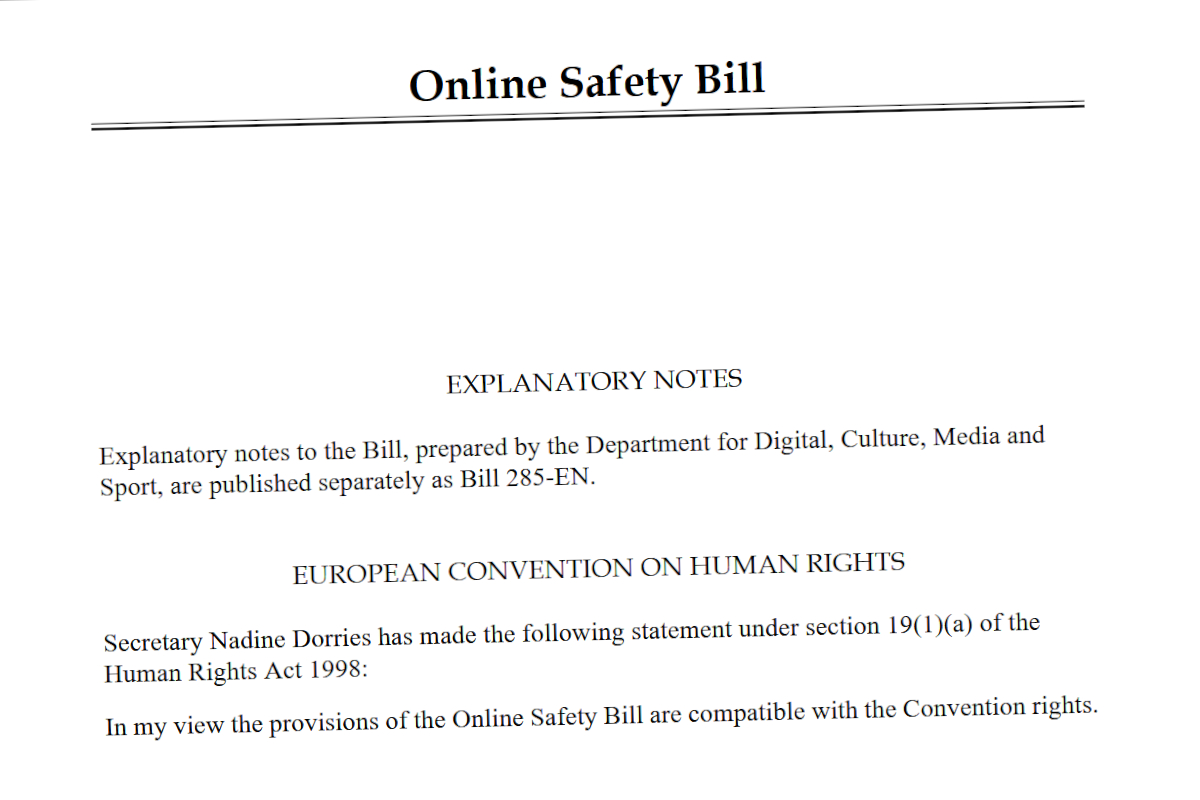Swedish parliament urged to reject law that would "greatly undermine security and privacy"
Topic
Country/Region
08 April 2025
The Swedish parliament is benig urged to reject a law that would "force companies to store and provide law enforcement with access to their users’ communications, including those that are end-to-end encrypted." The law, designed to strengthen police powers, would "create vulnerabilities that criminals and other malicious actors could readily exploit," says the letter. More 230 organisations and individuals from more than 50 countries have signed the letter, including Statewatch.
Support our work: become a Friend of Statewatch from as little as £1/€1 per month.

Image: Sasun Bughdaryan, Unsplash
The letter makes clear that the law will create "an encryption backdoor —akin to a master key that unlocks every door in a building."
This is "a dangerous approach which would instead create vulnerabilities that criminals and other malicious actors could readily exploit," it warns.
The law in question is 'Ju2024/02286 Datalagring och åtkomst till elektronisk information' - 'Data storage and access to electronic information'.
It is one of several attempts by European governments to undermine the private and secure communication provided by encryption.
A recent French law passed in the name of fighting drug trafficking originally included provisions that would have created an encryption backdoor, though these were removed during parliamentary debates.
The giant technology corporation Apple is appealing an order from the British government to create a backdoor in its communication services.
The EU is also coordinating a plan on the issue. The European Commission recently declared (pdf) its intention to draft "a Technology Roadmap on encryption, to identify and assess technological solutions that would enable law enforcement authorities to access encrypted data in a lawful manner, safeguarding cybersecurity and fundamental rights."
The G7 states have also declared their intention to grant police access to encrypted communications, despite the longstanding global consensus amongst technology experts that this is impossible without fundamentally undermining secure communication for all.
Full-text of the letter
8 April 2025
The undersigned civil society organizations, companies, and cybersecurity experts, including members of the Global Encryption Coalition, urgently call for the Swedish Riksdag to reject the legislation, “Ju2024/02286 Datalagring och åtkomst till elektronisk information.” This legislation, if enacted, would greatly undermine the security and privacy of Swedish citizens, companies, and institutions. Despite its intention of combating serious crime, the legislation presents a dangerous approach which would instead create vulnerabilities that criminals and other malicious actors could readily exploit. Compromising encryption would leave Sweden’s citizens and institutions less safe than before.
The legislation would force companies to store and provide law enforcement with access to their users’ communications, including those that are end-to-end encrypted. The consensus among cybersecurity experts is that complying with this requirement for end-to-end encrypted communications services will be impossible without forcing providers to create an encryption backdoor —akin to a master key that unlocks every door in a building.
The creation of an encryption backdoor creates vulnerabilities that would leave Sweden less safe against cyber threats and foreign adversaries. This concern is echoed by the Swedish Armed Forces, which has stated that [access requirements in End-to-end encrypted communication] “cannot be fulfilled without introducing vulnerabilities and backdoors that third parties can exploit.”
If passed, the legislation leaves platforms offering end-to-end encrypted services with an impossible choice. They will either need to comply and undermine the security of their services, or they will be forced to leave the Swedish market. In either scenario, the result is less secure and private communications for the Swedish citizens, companies, and institutions who rely on these tools. Over 40% of Swedish Internet users benefit directly from the security and privacy provided by end-to-end encrypted messaging services.
Undermining the confidentiality of end-to-end encrypted services would have a particularly harmful impact on those already at most significant risk: journalists and activists who rely on secure communication to protect sources and organize safely, families and domestic violence survivors who use encryption to shield themselves from abuse, LGBTQ+ individuals who depend on secure platforms for safety and community, and many more who rely on the protection and privacy provided by end-to-end encrypted services. International human rights bodies, including the European Data Protection Board and European Court of Human Rights, have recognized the importance of end-to-end encryption to protect the right to privacy and to promote the exercise of other rights.,
Swedish companies, government services, and institutions all benefit from end-to-end encryption. The Swedish Armed Forces recognized this when they recently endorsed the use of Signal, an end-to-end encrypted messaging application, to protect the non-classified communications of national security professionals. If the legislation passes, Signal has already indicated that they would choose to leave the Swedish market rather than comply.
Ensuring the security and privacy of government officials and national security professionals is vital for helping prevent extortion or coercion attempts, which could lead to more significant national security damage. The Swedish Armed Forces have noted in January 2025 that “the country is subject to regular cyberattacks”, and in such an environment, ensuring Swedish citizens, companies, and institutions have access to uncompromised end-to-end encrypted communications is more vital than ever.
Weakening encryption would be akin to lowering defenses during heightened risk. Amid such national security challenges and the fallout of the Salt Typhoon hack, the reliance by the Swedish government, citizens, and businesses on end-to-end encryption to keep themselves safe and secure has never been greater.
Rather than undermining encryption, the government should invest in and utilize modern investigative techniques that are targeted and do not compromise the security of all users. These include enhanced digital forensics, improved data analysis, and international cooperation.
End-to-end encryption is vital to protecting Sweden’s interests. In light of the severe risks to security, privacy, and human rights, we strongly urge the Riksdag to reject “Ju2024/02286 Datalagring och åtkomst till elektronisk information.” Passing this legislation would damage Sweden's cybersecurity, digital economy, and commitment to human rights. It would create a legacy of vulnerability that would persist for generations.
We implore you to protect Swedish citizens' communications and fundamental rights, safeguard Sweden's digital future, and prioritize policies that strengthen rather than weaken cybersecurity. Sweden's security, prosperity, and freedom depend on it.
Signatories
Organisations
Access Now
Africa Media and Information Technology Initiative (AfriMITI)
African Academic Network on Internet Policy
Assured AB
Betapersei, SC
Bits of Freedom
Center for the Study of Organized Hate (CSOH)
Centre for Democracy & Technology Europe
Character Works AB
Comunitatea Internet Association
Cyberstorm.global
Danes je nov dan, Inštitut za druga vprašanja
Dataföreningen västra (Swedish Computer Association)
Deutsche Vereinigung für Datenschutz e.V. (DVD)
DFRI (Föreningen för Digitala Fri- och Rättigheter)
Dispersion AB
Egyptian Initiative for Personal Rights (EIPR)
Electronic Frontier Finland - Effi ry
Electronic Frontier Foundation
Elektronisk Forpost Norge
Encryption Advocates Council
European Digital Rights (EDRi)
European Roma Rights Centre
European Sex Workers Rights Alliance (ESWA)
Fight for the Future
Freedom of the Press Foundation
Global Partners Digital
Homo Digitalis
How to know AB
Index on Censorship
Internet Society
Internet Society Benin Chapter (ISOC BENIN)
Internet Society Cameroon Chapter
Internet Society Capítulo Venezuela
Internet Society Catalan Chapter (ISOC-CAT)
Internet Society Chad chapter
Internet Society Comoros Chapter
Internet Society Dominican Republic Chapter
Internet Society Ecuador Chapter
Internet Society Ethiopia Chapter
Internet Society German Chapter ISOC.DE
Internet Society Ghana Chapter
Internet Society Guinea Chapter
Internet Society Mali Chapter
Internet Society Niger Chapter
Internet Society Norway Chapter
Internet Society Paraguay Chapter
Internet Society Portugal Chapter
Internet Society Puerto Rico Chapter
Internet Society Senegal Chapter
Internet Society Slovenia Chapter
Internet Society Sierra Leone Chapter
Internet Society Sweden Chapter
Internet Society Taiwan Taipei Chapter
Internet Society Togo Chapter
Internet Society Uruguay Chapter
Internet Society Zambia Chapter
IT-Pol Denmark
JCA-NET(Japan)
Kamratdataföreningen Konstellationen
LGBT Tech
Mozilla
MyData Sweden
Myntex
NetTek Ltd
Omnifi Foundation
OneMore Secure AB
Open Knowledge Sweden
Open Rights Group
OpenMedia
OSIRIS SEC AB, Security Installer
Peergos Ltd
Phoenix R&D GmbH
Politiscope
Proton
Privacy International
Privacy & Access Council of Canada
Quilibrium
Recurity Labs GmbH
SecureCom
SECURECRYPT
SHARE Foundation
SkypLabs
Statewatch
Surfshark
Swedish Network Users Society
Tech for Good Asia
The Cybersecurity Advisors Network (CyAN)
The Swedish Internet Foundation
The Tor Project
Thomson Reuters Holdings AB
Totalförsvarets Förvaltningsorganisation
Tuta Mail
Virtual School on Internet Governance
XPD AB
3 Steps Data
Individual experts*
Anders Abel, Sustainsys AB
Jaak Akker, CISSP
Viktor Alakörkkö
Magnus Almgren, Chalmers University of Technology
Anders Alfredsson, Devies Cybersecurity+
Petrus Allberg, Truesec AB
Thomas Althoff, Mainloop
Jakob Andersson
Jan Andersson
Vivi Andersson, KTH Royal Institute of Technology
Jörgen Anger-Annell, IT-architect
Daniel Appelquist, W3C TAG Co-chair and OpenSSF Global Cybersecurity working group co-chair
Oscar Asterkrans, All Embedded AB
Johan Åtting, Cyberly
Per Axbom, Axbom Innovation AB
Pierre Bäckström, Seeyou AB / On1Call Support AB
Martin Bergling, RISE - Research Institutes of Sweden
Fredrik Björeman, Kodsnack
Carl Mikael Björn, Vivetuvida Sverige AB
Simon Blomsterlund, Critical Tech AB
Rikard Borginger, Region Kronoberg
Anders Boström, Net Insight
Simon Bouget, RISE Research Institutes of Sweden
Tobias Brox, Redpill Linpro
Carl Magnus Bruhner
Randy Bush, RGnet
Jon Callas, Indiana University
Jean Camp, Indiana U
Sofia Celi, Brave
Dr Duncan Campbell, University of Sussex, School of Law Politics and Socioogy,, Brighton, UK
Anders Darander
Per Darnell
Angelique Dawnbringer, Accigo AB
Lars Delhage, Nohup AB
Orr Dunkelman, University of Haifa
Javier Ruiz Diaz, Sussex Centre for Law and Technology (SCLT)
Sven Dietrich, City University of New York (CUNY)
Tobias Ekbom, F.d. styrelseledampt Defensor, patenterat deduplicering i kombination med source-side encryption. Arkitekt i cybersäkerhet.
Torbjörn Eklöv
Tony Eklund, ICA
Peter Eriksson, Noproduct AB
Pontus Engblom, pingdash AB
Nicola Fabiano, Studio Legale Fabiano
Stephen Farrell, Trinity College Dublin
Dr. Simone Fischer-Hübner, Professor at Karlstad University
Dr. Richard Forno, UMBC
Mikael Forsgren, Verified Global AB
Amir Gaber
Simson L. Garfinkel, Association for Computing Machinery
Marcus Glaad
Simon Gökstorp, KTH Royal Institute of Technology
Dr. Ian Goldberg, University of Waterloo
Dr. Christine Grosse, LTU
Niklas Gustafsson, DPO
Masayuki Hatta, Surugadai University
Richard Hagerwald, Lead Architect Digital Workplace
Jacob Hallén, Sekans AB
Ulf Hedlund
Leif Henriksson
Kent Illemann, illemann konsult ab
Dr. Leonardo Horn Iwaya, Karlstad University
Emil Jacobson
Prof. Dr.-Ing. Meiko Jensen, Karlstad University
Carl-Arne Johannesson, Secufor AB
Olle E. Johansson, Edvina AB
Simon Josefsson
Johan Kallum
Per Kangru
Samuel Kelemen, Principal Security Engineer at King
Staffan Kerker, Splisado AB
Gabriel Kihlman, ABC-Klubben
Agnieszka Kitkowska
Markus Küchler, Epiroc
Mikael Kullberg, Cat Herd AB
Håkan Kvarnström, Independent consultant
Susan Landau, Tufts University
Magnus Larsson, Gislovs IT support & consulting
Richard Levitte, OpenSSL Foundation
Andreas Lindegren, KTH Royal Institute of Technology
Andreas Lindh, Recurity Labs GmbH
Ragnar Lönn, Odd Parity AB
Jesper Lönnqvist
Anne-Marie Eklund Löwinder, Amelsec AB
Dr. Kaspar Rosager Ludvigsen, Durham University
Johan Lundberg
Viktor Lundberg, CISO
Martin Lundgren, University of Skövde
Jens M, West Code Solutions AB
Jesper Madsen, Orange Cyberdefense
Claes Magnusson, Malmö Yrkeshögskola
Christian Meiczinger, Clavister AB
Victor Morel, Chalmers University of Technology
Kathleen Moriarty, Security BiaS
Renzo Navas, IMT Atlantique
Karl Emil Nikka, Nikka Systems
Andreas Nilsson, KTH
Jan Nilsson, Karlstad University
Marcus Ofenhed, Condition Raise AB
Mats Hagberg Olsson, Senior Solutions Architect, EQ2 Technology AB
Joakim Östling
Patrik Östman, CISO
Jörg Alexander Pareigis, Karlstad University
Gustav Petersson
Ivan Pettersson, Cybersecurity evangelist, Arrow ECS sweden
Victor Pettersson, CISO, Sokigo
Fredrik Pettai
Riana Pfefferkorn, Stanford University
Tobias Pulls, Karlstad University
Dr Gnanajeyaraman Rajaram, Saveetha University
Jonas Rendahl - CISO
Francisco Blas Izquierdo Riera (klondike), KITS AB and Chalmers University of Technology and University of Gothenburg
Josef Rudenlöv, Senior Cyber Security Advisor, Valisecure
Jakob Schlyter, Kirei AB
Mikael Schriwer, Drivlinan AB
Rima Sghaier, Digital rights advocate (independent)
Dr Jessica Shurson, University of Sussex
Ann Singleton, University of Bristol (signed in a personal capacity)
Johnny Slätt, AE Security
Eugene H. Spafford, Purdue University, USA
Daniel Stenberg, the curl project, president of the European Open Source Academy
Mats Strålberg, Inforing AB
Magnus Ström
Daniel Sörlöv, Microsoft
Peter Sunde Kolmisoppi, ex The Pirate Bay/Wikileaks
Erik Svensson
Niklas Svensson CISSP
Carl Svensson
Johan Thelin, Koderize
Marco Tiloca, RISE Research Institutes of Sweden
Ulrich Wisser
Paul Wouters, IETF Security Area Director
Anna Louise Yngström Valdre, professor em Stockholm Univerity
Magnus Vallstedt, Urban Hippo AB
Mališa Vučinić, Inria
Dr. Karin Zackari, Lund University
Daniel Zappala, Brigham Young University
*Affiliations listed for identification purposes only
Our work is only possible with your support.
Become a Friend of Statewatch from as little as £1/€1 per month.
Further reading

EU police data plans pose "substantial security and privacy threats"
EU plans to increase police access to personal data could weaken "fundamental rights, legal safeguards and the European economy." The warning comes in an open letter addressed to the EU Justice and Home Affairs Council, and is signed by more than 50 organisations, including Statewatch. The signatories include NGOs, businesses, journalists' unions, lawyers' associations, and others.

Statement to EU countries: Do not agree to mass surveillance proposal, warn NGOs
Over 80 organisations, including Statewatch, are calling on EU member states to block the proposed Child Sexual Abuse Regulation, which would fatally undermine encryption and thus the safety and privacy of all internet users. In the UK, the government has recently conceded that similar clauses in the Online Safety Bill will not be enforced until it is technologically possible to do so - which is likely to be never.

UK must protect global digital security and safeguard private communication
An open letter signed by over 80 civil society organisations, including Statewatch, is calling on the UK government to protect digital security and private communications by removing provisions from the Online Safety Bill that would require communications service providers to add "backdoors" to encrypted messaging services, undermining safety for all.
Spotted an error? If you've spotted a problem with this page, just click once to let us know.

